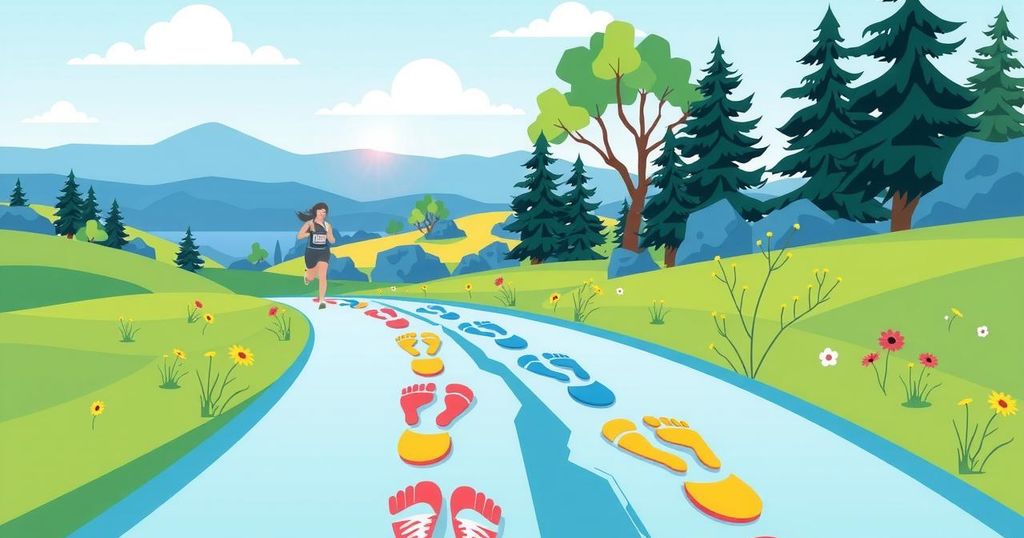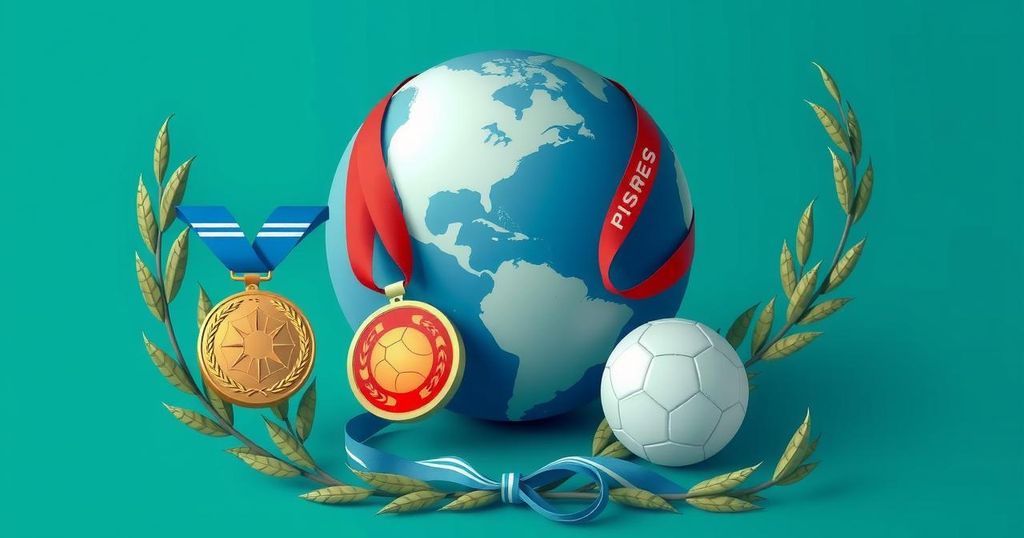Running has surged in popularity in Windhoek, Namibia, particularly since the Covid-19 pandemic, with residents of various backgrounds prioritizing this accessible form of exercise. The Windhoek Runners Club serves as a central hub for enthusiasts, while individuals also engage in morning runs. Esteemed runners like Frans Amakali and Lisa Matombola highlight the personal growth and communal benefits of this movement, which is supported by corporate initiatives. Upcoming events are set to enrich the running culture in Namibia.
In recent years, the trend of running has gained momentum in Namibia, predominantly in the capital, Windhoek. Individuals from diverse backgrounds and fitness levels have embraced this activity, leading to a more health-conscious society. This shift is largely attributed to the Covid-19 pandemic, during which many sought alternative forms of exercise due to gym closures and social restrictions.
The transition towards running as a favored exercise became apparent as people sought out accessible options that required no special equipment. Once merely a coping mechanism during the pandemic, running has transformed into a widespread enthusiasm, with an increasing number of residents in Windhoek participating regularly.
The Windhoek Runners Club has emerged as a premier organization facilitating this movement, acting as an epicenter for running aficionados. However, the passion for running extends beyond organized groups, as many individuals choose to awaken early for their morning runs, typically starting around 5:30 AM.
Prominent running routes offer varied challenges, such as a popular stretch near the Daan Viljoen roadblock, where many runners engage in 5 km to 10 km routes, while others tackle longer 21 km distances to push their limits.
Frans Amakali, a distinguished runner and ambassador for the Comrades Marathon, has observed the significant impact of running in Windhoek firsthand. He articulates that, “Running, for me, is more than just a sport – it is a lifestyle that fosters discipline, mental clarity, and a deep connection with oneself and the environment.” According to him, the rise in running is indicative of a broader shift in how individuals perceive health and fitness.
Amakali continues, “Indeed, the Covid-19 pandemic played a significant role in the surge of running in Namibia.” This situation led many to adopt running as it remains a straightforward form of exercise, fostering a sense of community and encouraging individuals of all ages to engage in fitness.
Lisa Matombola, another member of the Windhoek City Runners, underscores the personal growth derived from running. “Running has different benefits – it has contributed to my confidence. Most runners become more confident when they run, especially long distances,” she states. Moreover, Matombola elucidates how running serves as a medium for networking and relationship-building, indicating its value beyond physical fitness.
She elaborates that many corporations are embracing running events for team-building, with organizations often subsidizing participation in events to promote employee wellness. Matombola personally participates in marathons to advocate for causes such as women’s health and education support.
Martin Angombe, a Strength and Conditioning coach, emphasizes the crucial role of running for athletes. He states, “One of the biggest benefits of running is improved cardiovascular endurance,” noting that it enhances performance by better oxygen delivery to muscles, thereby reducing fatigue.
Angombe identifies that running not only aids stamina and recovery but also solidifies core stability while lessening injury risks. Furthermore, he affirms the mental resilience it nurtures, stating that, “Whether for professionals or recreational runners, integrating running into training offers invaluable physical and mental advantages.”
As the running season in Namibia approaches, anticipation builds with numerous events on the calendar. The recently concluded Rossing Marathon and MTC Runners Connect have paved the way for an exhilarating year, with various competitions including the SPAR Women’s Challenge on 29 March and the Vivo Energy Windhoek Marathon on 12 April.
The increasing popularity of running in Namibia, particularly in Windhoek, reflects a broader commitment to healthier lifestyles, initiated during the Covid-19 pandemic. The growth is facilitated by clubs and individuals dedicated to this pursuit. The myriad personal and community benefits of running have unarguably fostered a culture of wellness and connectivity among participants, while upcoming events promise continued engagement and excitement for enthusiasts throughout the running season.
Original Source: neweralive.na




